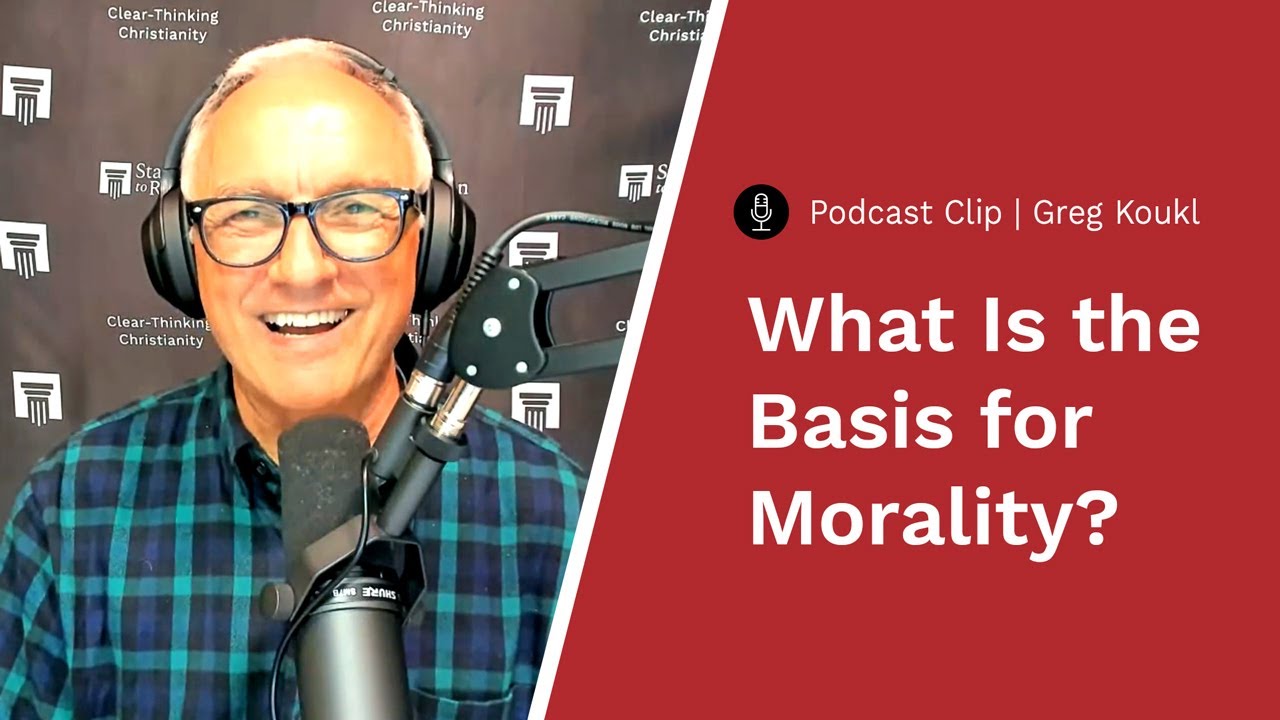
Are These What Ground Morality?
Greg Koukl answers the question, “Can the scientific method provide a basis for morality and empathy provide an obligation for morality?”
#StandtoReason #Apologetics #Christianity #Science #Morality #Philosophy #RightandWrong
————— CALL IN TO THE SHOW —————
Have a question or comment? Call Greg Koukl, live Tuesdays 4-6pm Pacific Time, at (855) 243-9975.
————— SUBMIT YOUR QUESTION —————
If you’d like to submit your question ahead of time for the broadcast, or if you’d like to submit a question for the #STRask podcast, fill out our form at https://www.str.org/broadcast.
————— FIND MORE FREE TRAINING —————
Website: https://www.str.org/
Stand to Reason University: https://training.str.org/
Stand to Reason Apps: https://www.str.org/apps
————— CONNECT —————
Twitter: https://twitter.com/STRtweets
Facebook: https://www.facebook.com/standtoreason93
Instagram: https://www.instagram.com/standtoreason
LinkedIn: https://www.linkedin.com/company/stand-to-reason/
————— GIVE —————
Support the work of Stand to Reason: https://str.org/donate
source











I'll try to help Koukl out in explaining the argument he claims to be representing here. Empathy evolves because obligate social primates like humans must act with empathy in order to survive. Those who routinely lie, cheat and kill others do not survive; those who cooperate, care for others and resolve conflict survive better. To embed these survival behaviours, humans collectively develop systems that reinforce and reward compliance and punish those who do not conform. This is the basis for both a legal system, religious codes of morality, and the idealisation of individuals who best exemplify the desired traits.
Some behaviours and norms tend to persist; eg caring for children will always enhance long term survival of the species, so the set of social norms that embed care for children will persist as an unchanging good.
But conditons do change over time, and there is always a struggle between those who think that we need to persist with older norms and those who argue for change. The Old Testament represents the "old-timers", and illustrates problems with claiming there is a morality that is "objective" and completely outwith human agency. Thus, waging war on other tribes, bonded labour within the tribe, and the owning of people from other tribes as chattel slaves, was a system that enabled survival in the pastoral patriarchies of the Ancient Near East. The men who wrote the OT were convinced that this way of life wasn't just practical, it was commanded by Divine, "objective" morality. The problem comes when people today accept this idea and seek to defend these practices as if they were eternal moral duties. Turns out, not so much.
How about you provide some counter examples, for instance using the scientific method to arrive at the conclusion that certain groups of people are sub human, and therefore worthy of extermination or enslavement. How you like them moralities?
By virtue of even assuming something like empathy exists, the atheist has undercut their worldview. Is empathy an objective good? The athiest will decimate their worldview if they claim anything is an objective good or bad, empathy being no exception. The unbeliever who claims empathy is a good, that harming others is wrong, simply begs the question: by what standard?
Everything falls apart for the atheist; without God, everything unravels. The athiest cannot objectively define anything. They assume certain things to be true, but such things make no sense given their worldview. For the athiest to be consistent, he would have to be indifferent to everything and anything. The athiest tries to smuggle morality into their worldview, but they have NO basis to call anything objective.
Thank you
Be fruitful and multiply.
We have a basis for that :).
Thanks for sharing.